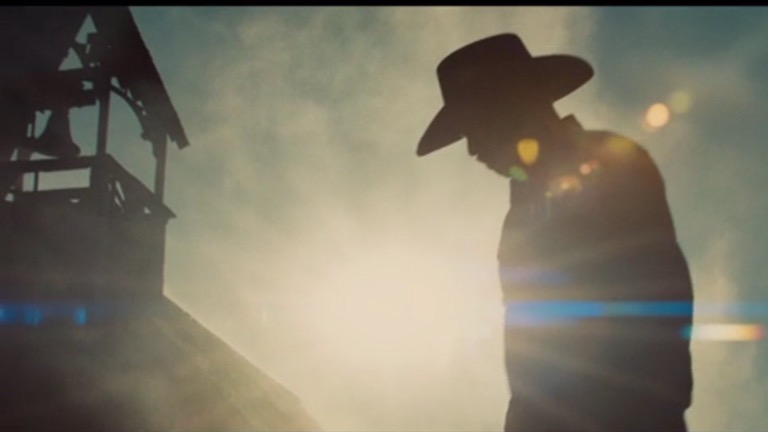We’re reputedly living in a more secular age, but popular entertainment often reflects a more complicated reality. The new version of the Magnifcent Seven, staring Denzel Washington, centers around a frontier California village church, named Emmanuel, burned by a tyrannical land robber baron. The tyrant and his henchmen disrupt a congregational meeting to demand fidelity. After issuing his threats from the pulpit he snatched from the preacher, the robber baron orders several parishioners murdered in the street. The widow of one victim later implores a visiting bounty hunter, Washington, to rescue their suffering community, prompting him to assemble 6 other gunslingers.
The original 1960 Magnificent Seven was set in Mexico, with a village plagued by rapacious bandits, prompting their appeal to Cajun gunman Yul Brynner to hire mercenary defenders. The village Adobe style Catholic church forms a picturesque backdrop for the ensuing violence, but neither the church nor its unseen priest feature directly in the drama.
In contrast, the new version highlights the town preacher as community leader. On the night before the town is to be attacked in mass by the robber baron’s hireling army, the people gather for spiritual solace in the burned shell of their ravaged sanctuary, illumined by scores of candles. Denzel Washington, as the tortured soul organizing the town’s defense, also finds comfort there. In the finale, he will also confront the robber baron there. The church steeple during the battle is a key defense point. After the battle, the preacher thanks Washington for saving his people.
The preacher, having participated in the town defense, is apparently no pacifist, although one parishioner at the story’s start counsels Christian nonviolence, before the robber baron’s church arson and other atrocities. The widow seeking Washington’s help, when he asks her if she seeks vengeance for her husband’s murder outside the church, responds, “I seek righteousness, but I’ll take vengeance.” One of the gunmen whom Washington enlists as one of The Seven is a Scripture quoting tracker and Baptist who offers theological justification for retributive justice.
Magnificent Seven is the story of righteousness pursued, with theology and the church featuring prominently in the new version. The Protestant sanctuary itself, ravaged at the start, finds redemption by serving even when only a shell, as a defensive redoubt, where justice against a villain is finally obtained by his chief victims.
In our supposedly more secular time, the church maybe more deliberately envisioned as anchor for solace, justice and righteousness, as in this film’s new version, more than in the more generically religious era of the 1960 version, where the church is merely a scenic, passive backdrop. The latest Magnificent Seven is more realistic and theologically astute, portraying the church as the target of evil, torched and desecrated, yet still a sure refuge, and persevering.
No comments yet




